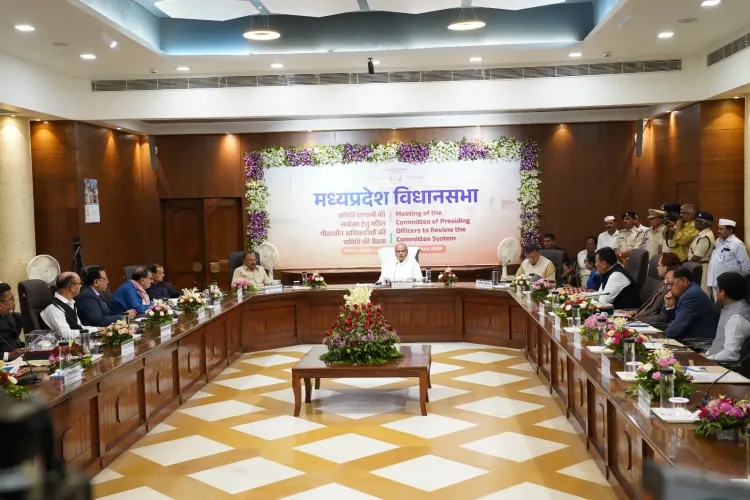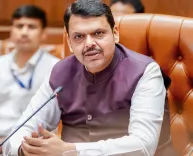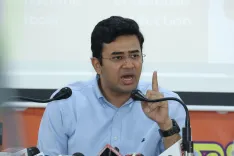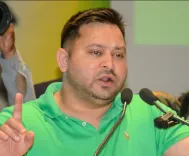What Happened at the First Meeting of Assembly Speakers from Seven States at MP Vidhan Sabha?

Synopsis
Key Takeaways
- Importance of Legislative Committees: Essential for overseeing parliamentary work.
- Collaboration Among States: Promotes effective governance.
- Role of Technology: Enhances discussions on innovations.
- Systematic Approach: Detailed scrutiny of important subjects is crucial.
- Field Inspections: Committees conduct field visits for better policy evaluation.
Bhopal, July 14 (NationPress) The Assembly Speakers representing seven states convened for their inaugural meeting at the Madhya Pradesh Vidhan Sabha on Monday.
The assembly, held in the conference hall of the state Legislative Assembly, focused on enhancing the effectiveness and importance of legislative committees within the parliamentary framework.
Chaired by Narendra Singh Tomar, the Speaker of the Madhya Pradesh Legislative Assembly, the meeting included participation from Speakers of six additional states: Satish Mahana (Uttar Pradesh), Vasudev Devnani (Rajasthan), Kuldeep Singh Pathania (Himachal Pradesh), Biman Banerjee (West Bengal), Surama Padhy (Odisha), and Mingma Norbu Sherpa (Sikkim).
Secretaries from the Assemblies of these seven states, along with other senior officials, were also present.
During the discussions, Tomar underscored the crucial role committees play in monitoring parliamentary activities. He emphasized that committees serve as a legislative extension when Assemblies are not in session, thus underscoring their importance.
“As our population grows and technology advances, committees and smaller groups are essential for discussing issues, innovations, and ensuring the timely execution of recommendations from both state and central governments for effective governance,” Tomar stated.
He further remarked on the significant responsibilities borne by India's legislative structure, legislators, and Parliament, noting that the committee system was instituted due to the impracticality of discussing every issue.
“Our predecessors established the committee system to meticulously examine each critical subject raised by legislators. These committees conduct thorough studies and offer suggestions before presenting their findings in the House,” Tomar elaborated.
Tomar also mentioned that Madhya Pradesh has four elected financial committees, alongside two additional committees specifically for Scheduled Tribes (ST) and Scheduled Castes (SC), as well as one for Other Backward Classes (OBC).
The state has a total of 15 nominated committees, which include members from both the ruling and opposition parties. These committees are tasked with conducting field visits, inspections, and policy evaluations, he added.





